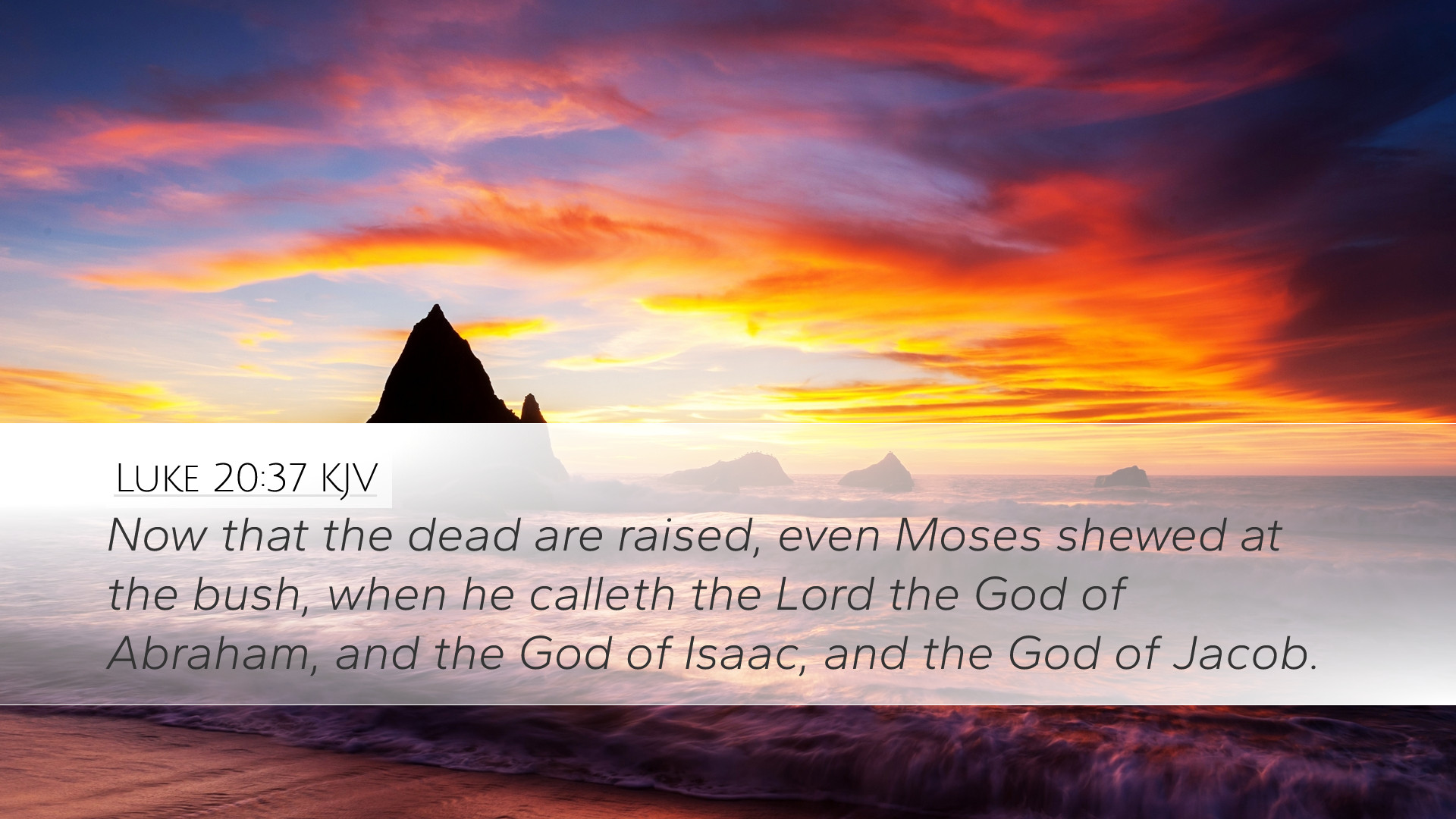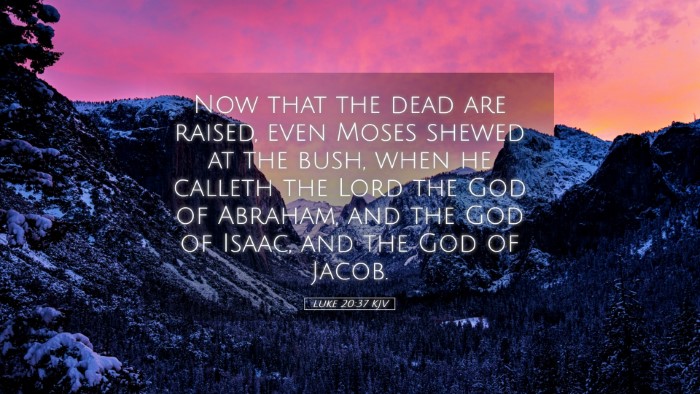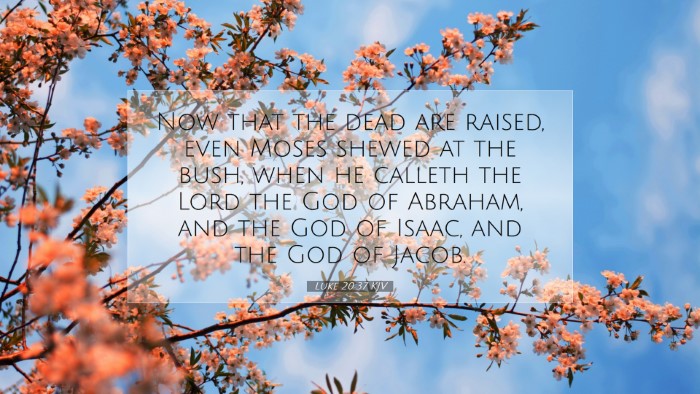Bible Commentary on Luke 20:37
Verse: "But that the dead are raised, even Moses showed at the bush, when he called the Lord the God of Abraham, and the God of Isaac, and the God of Jacob." (Luke 20:37)
Contextual Overview
The context of Luke 20 presents a confrontation between Jesus and the Sadducees, a group known for their denial of the resurrection and the existence of angels. This verse is pivotal as it employs a key example from the Hebrew Scriptures to argue for the reality of life after death, drawing upon the identification of God with the patriarchs Abraham, Isaac, and Jacob.
Commentary Insights
1. The Argument from Scriptures
Matthew Henry emphasizes the significance of Jesus’ argument. By referring to Moses, He cites the burning bush experience recorded in Exodus 3. This moment signifies that God is not simply identified with the dead, but that he continues to assert His relationship with them, thus affirming their existence beyond physical death.
Albert Barnes notes the importance of Jesus' use of "I AM" from the passage in Exodus. God’s declaration "I am the God of Abraham, Isaac, and Jacob" conveys that these patriarchs still exist in a spiritual sense, achieving eternal life through their covenantal relationship with God.
Adam Clarke further elaborates by pointing out that the tense employed illustrates enduring existence. Though the patriarchs had died centuries prior, God's identification with them indicates that they were not extinguished but rather continue to live in His presence.
2. The Implications of Resurrection
The assertion of resurrection is not simply a theological concept, but it has practical implications for faith and worship. Henry argues that if the dead are raised, it transforms how believers approach life, death, and ultimately, God. It instills hope in believers and shapes ecclesial teachings on afterlife.
Clarke emphasizes the moral duty of followers to reconcile their lives with the truth of resurrection. As they believe in an afterlife, it should reflect in their ethical decisions, urging them to live responsibly under God's authority.
3. Response to Skepticism
Jesus’ response serves as a rebuke against the Sadducees' skepticism. Barnes notes that the Sadducees’ denial of resurrection stems from a limited understanding of God’s power. In this way, Jesus emphasizes that divine capability extends beyond human comprehension. By citing the authoritative Moses, Jesus asserts the unchanging truth of God’s promises to His people.
Henry reflects on how this confrontation is instructive for contemporary believers, encouraging a robust and educated faith that depends on biblical testimony and not merely human tradition or interpretation.
4. Theological Reflections
The theological undertones of this verse are profound. Clarke illustrates that belief in the resurrection is integral to the Christian faith. It is foundational to the apostolic teachings and essential for understanding the full scope of God’s redemptive narrative.
Furthermore, as Barnes concludes, this affirmation of resurrection is a cornerstone of pastoral preaching and teaching. It reassures believers of their hope and future with God, motivating faith communities to share this assurance with the world.
5. Final Exhortation
As leaders, theologians, and scholars engage with Luke 20:37, it should spur them to incorporate biblical truth about resurrection into their doctrines, teaching, and pastoral care. The power of the resurrection should be a central theme in their ministry.
In light of this verse, let us challenge ourselves to witness boldly to the transformative truth of resurrection, anchoring our faith and our ministry in the enduring promises of God.


